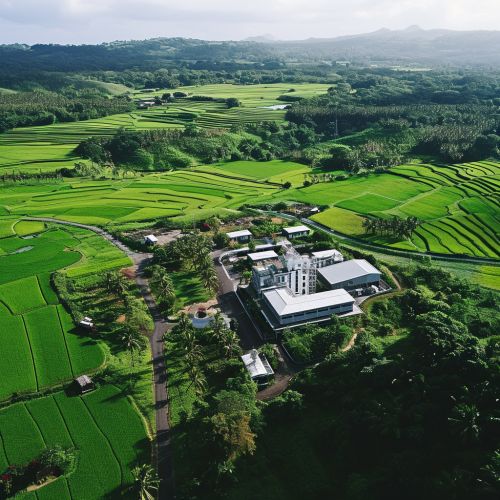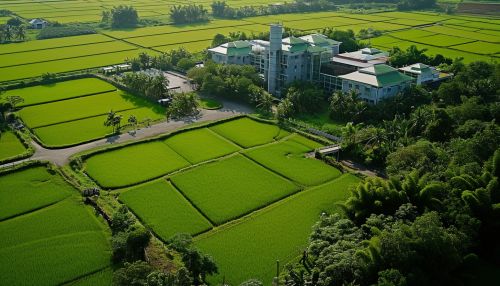International Rice Research Institute
Overview
The International Rice Research Institute (IRRI) is a leading global organization dedicated to the pursuit of a more secure future for rice farming. It is an independent, non-profit, research and educational institute, headquartered in Los Banos, Laguna, Philippines. Established in 1960 by the Ford Foundation and Rockefeller Foundation, the IRRI aims to reduce poverty and hunger, improve the health of rice farmers and consumers, and ensure the environmental sustainability of rice farming.
History
The International Rice Research Institute was established in 1960 by the Ford Foundation and the Rockefeller Foundation in response to concerns about the future of rice supplies in the wake of rapid population growth in Asia. The IRRI's founding mission was to improve the well-being of present and future generations of rice farmers and consumers, particularly those with low incomes.
Research and Development
IRRI's research and development activities are focused on improving rice cultivation methods, developing new rice varieties, and improving the nutritional quality of rice. This includes research on genetic engineering to create rice varieties that are resistant to pests and diseases, tolerant of adverse environmental conditions, and enriched with essential nutrients.
Achievements
Over the years, the IRRI has made significant contributions to rice research and development. These include the development of high-yielding rice varieties, the introduction of modern rice cultivation techniques, and the training of thousands of rice scientists and technicians from around the world.
Challenges and Criticisms
Despite its achievements, the IRRI has also faced challenges and criticisms. These include concerns about the environmental sustainability of intensive rice farming, the social impacts of technological change on rice farming communities, and the ethical implications of genetic engineering in rice research.
Future Directions
Looking ahead, the IRRI is committed to continuing its research and development work, with a focus on addressing the challenges of climate change, food security, and sustainable development. This includes research on climate-smart rice farming, the development of climate-resilient rice varieties, and the promotion of sustainable rice farming practices.
See Also


